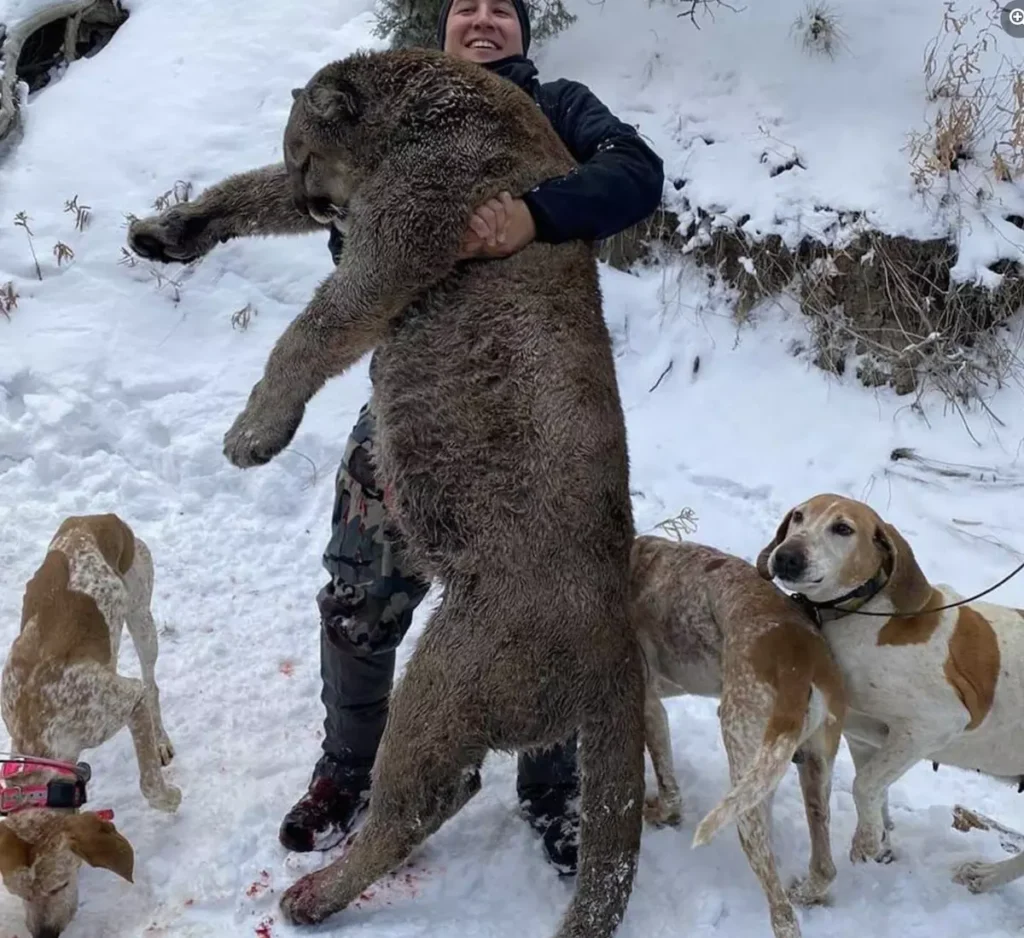Report is Available to the Public and Shows that A More Narrowly Tailored Ballot Measure Would Surely Win
Lafayette, CO — A new study by Colorado State University’s Animal-Human Policy Center reveals the loss of Prop 127 was far from an affirmation of state policies permitting hounding of or commercial fur trapping of bobcats and mountain lions.
Instead, the report indicated that there was a key segment of voters who were tentative about substituting their judgments for the views of personnel at Colorado Parks and Wildlife. They prefer that the agency handle the policy issues, but if there’s no action, they will claim the reins and make a decision. Voters are particularly resolute about banning fur trapping and hounding of native predators.
The new report is available to the public and titled, “Colorado Voter Perspectives on an Initiative to Ban Hunting and Trapping of Mountain Lions, Bobcat and Lynx and can be found here.
“This independent and academic report affirms what we thought in the wake of the election: voters rejected Prop 127 not because they like trophy hunting and commercial trapping of lions, but because they prefer to see state officials responsibly handle the issue,” said Julie Marshall, Communications Director for CATs. “If voters see inaction from state officials, and they feel they are the last resort when it comes to reform, they will be comfortable in deciding the issues directly. But they want the initiative to be a safety valve, not a regular or routine decision-making channel,” Marshall says.

CSU’s new report was conducted by researchers who traveled in December to Colorado Springs, Denver, Fort Collins, Glenwood Springs, Steamboat, Walden and the small towns in between to interview 314 people in public locations. Both rural and urban voters were equally surveyed. Authors include Dr. Rebecca Niemiec, Dr. Mireille Gonzalez and Jenna Brager.
Last August 2024, CSU faculty reported that 78% of Coloradans disapprove of trophy hunting of mountain lions, while a staggering 88% oppose the use of dogs in facilitating the hunt.
The earlier study is titled “Public Perspectives on hunting mountain lions and black bears in Colorado,” by authors Benjamin Ghasemi, Rebecca Niemiec, and Kevin R. Crooks, and was published Aug. 22 in the Society for Conservation Biology.
The report shows:
- 77.9% of citizens disapprove of hunting mountain lions for trophies
- 80.6% of citizens disapprove of hunting mountain lions for a hide or fur
- 62.7% of citizens disapprove of recreational hunting of mountain lions
- 88.2% of citizens disapprove of hunting mountain lions using dogs
Colorado in 1992 had banned baiting and hounding of bears, resoundingly with a two-thirds majority vote.
CATs Proves to Exhaust the System … Again
Since the 2024 election, CATs — a statewide grassroots coalition of volunteers — has appeared and appealed to Colorado Parks and Wildlife Commission at its last three public meetings to address commercial fur trapping and cruel and unsporting means of killing mountain lions and bobcats for trophies and for their fur.
In January and in March, CATs counted upwards of 120 people in total testifying in person and online before commissioners, asking to end allowing commercial fur trappers to use baited traps to lure then kill wildlife. CATs also asked commissioners to stop using hounds to terrorize and trap lions and bobcats in trees.
It is clear that proponents of Prop 127 did not do enough to explain that they had tried those routes before. Advocates for best science and welfare of wildlife years before Prop 127 had signed a petition of 208,000 signatures to end bobcat trapping in Colorado yet were dismissed by wildlife commissioners, a politically appointed body, despite the fact there are just 700 trappers in the state and 5.8 million Coloradans. The opposition was led by Safari Club International. Similarly, a bill in earlier years to end trophy hunting of mountain lions failed before the Agriculture Committee.
Just the same, last month, the Legislature’s Agriculture Committee again failed wildlife and disrespected science, by voting down 10-3 a bill that would have allowed science-based management of wildlife, not bias toward those who enjoy killing these magnificent predators. The committee killed the bill based on fake cries of victimhood from the extreme anti-predator, anti-wildlife groups – the same ones that killed Prop 127 with dark money from two billionaire trophy hunters.

